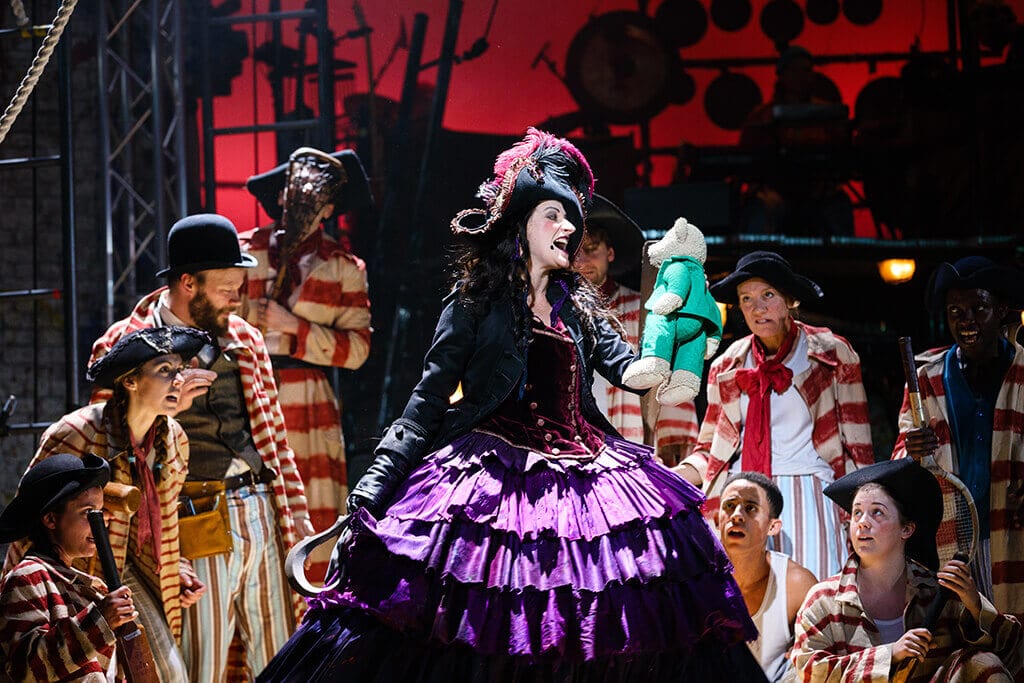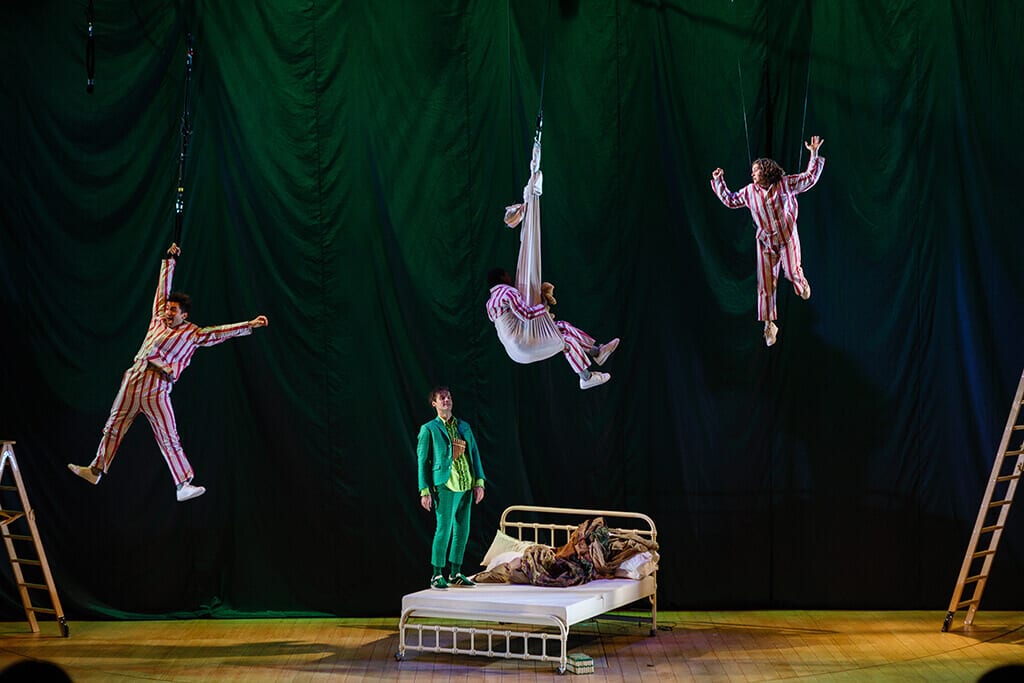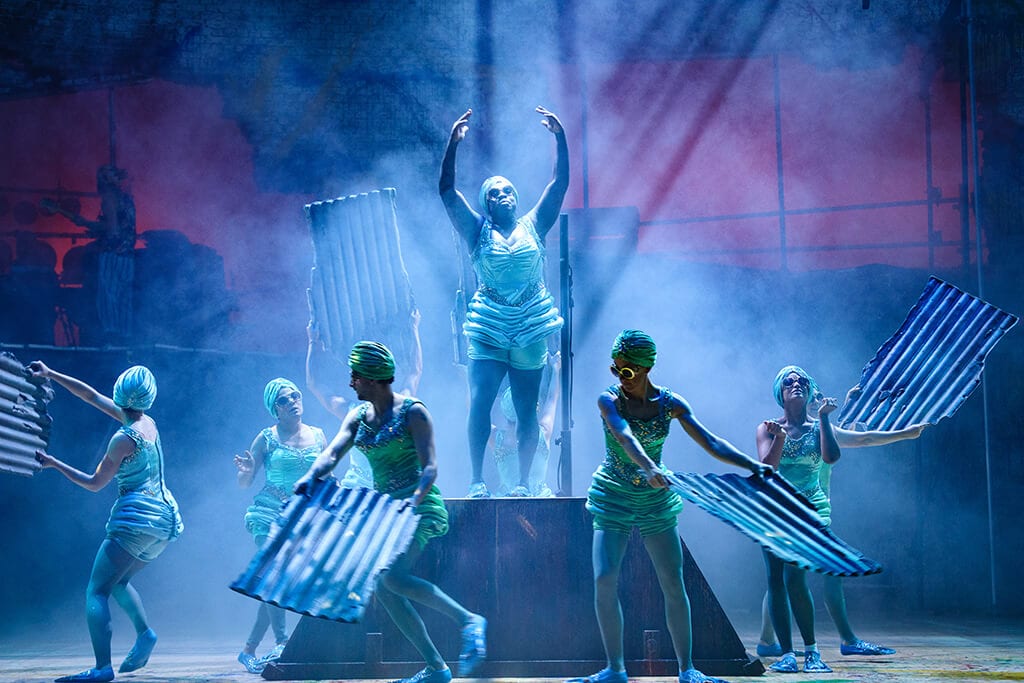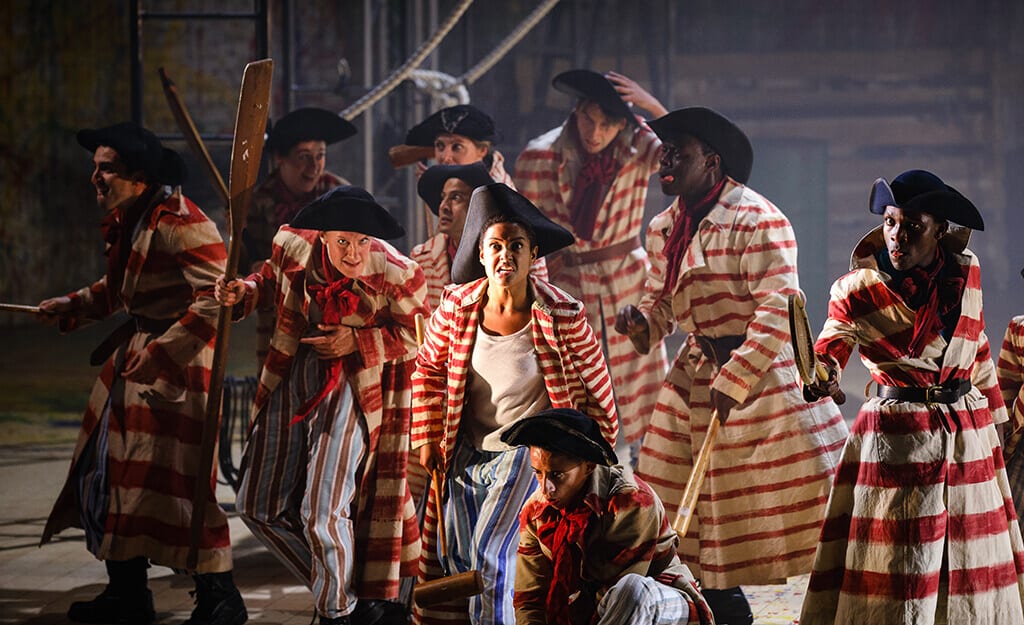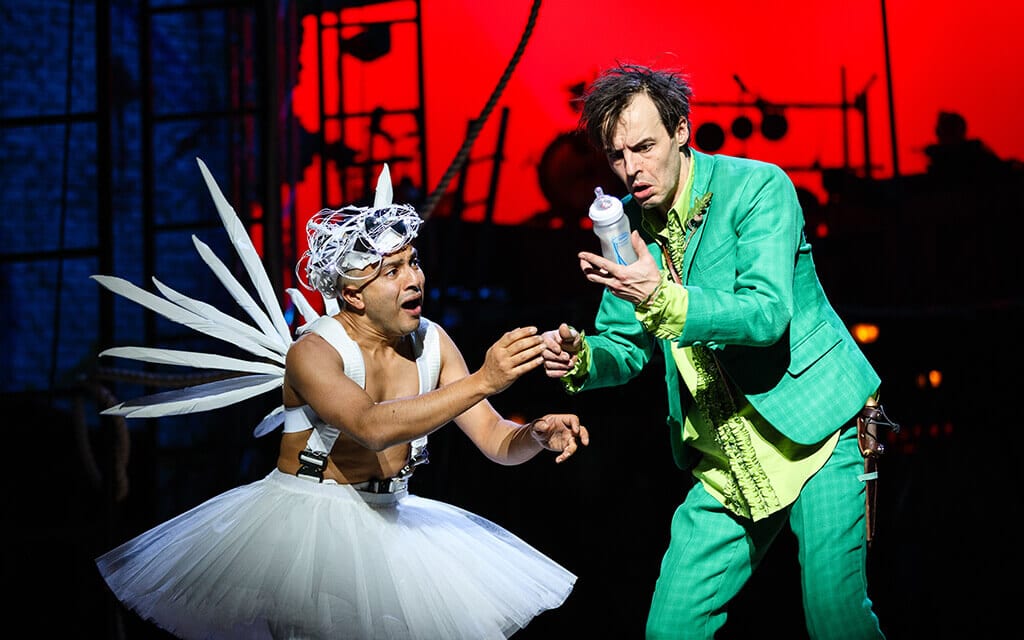To fly, you must be young, and innocent, and heartless – or so Wendy (Madeleine Worrall) tells us, and it is this emphasis on the heartlessness of eternal youth that gives this production the necessary bite. Paul Hilton’s Peter is often capricious. Even when he seems to mellow, there is no shying away from Peter’s violence, his forgetfulness. This is not to say that this is a gruelling trip into the darkness of childhood: right from the outset, this is a show with plenty for the children – and rightly so. The programme, which deserves a special mention, is delightful, with lots of activities to keep the little ones occupied in the interval and after the show. There were gleeful cackles from the children in the audience throughout – and the adults – although those laughs did not always overlap.
Wendy, with her childish sense of responsibility, which leads very naturally into her grown-up self, is a real highlight of the show. This is a production with little regard for traditional, gender-bound casting, and by-and-large this is an excellent, dynamic decision. Tinker Bell is played by the wonderful Ahamed Saikat, a little ball of Italian-speaking fury, who also stars as my favourite Lost Boy, the smart-aleck Curly. However, this imaginative casting can feel a little bit gimmicky: Nana, the Darling’s beloved dog, is played by Quartey Ekow, an adult man in frills and an apron who speaks exasperatedly to both children and parents, although they do not understand. Sure, it’s a bit of fun for the audience, but it feels largely unnecessary, and Ekow shines far brighter in his secondary role as the adorably penitent Tootles.
Another real star is Felix Hayes, whose Mr Darling (half in tux, half in pyjamas, clearly never having managed to quite grow up) performs a delightfully petulant pantomime, and whose Mr Smee has all the genteel creepiness of the best Saturday Night Live villains. Despite these strong performances – and some truly magnificent vignettes, particularly the Pirates Song, and the full-body puppetry of Peter’s shadow – the first half suffers from a lack of drive, often feeling more like a series of set-pieces than anything else. The flying scene is unutterably charming, however, with the ensemble playing catch with comets, and paper rain waving from the bottom of clouds.
However, the second act, with a much clearer plot arc, is where the production really comes into its own. It is also where Anna Francolini (who also plays Mrs Darling) really gets to shine. In the first half, her Hook – with her grill, outsize plastic hook and goth boots – is the perfect larger-than-life villain. However, the edge of insanity that we initially detect slowly becomes more evident. We see her shrunken, balding, raving for a lost youth. Francolini’s hollow, rattling delivery of the poem – and her bravery at her inevitable demise – bring genuine pathos and weight to the role. It is in these emotional moments that Peter Pan becomes much more than fun family Christmas show – although there is no doubt that it is also that. Peter’s verbatim recital of Barrie’s prose at a moment of risk, and the heart-wrenching mother/daughter bonds, all bring genuine emotional power.
With a story like Peter Pan – and a setting like the Olivier Theatre – the production design is necessary grandiose. The Lost Boys jump and wheel across the stage, the flying often done by human counter-balance, with ensemble members scrambling up and down ladders at the side of the stage. There is no attempt to hide the mechanics – they are very tongue-in-cheek about the “fairy string” needed to fly, but it is, also, a nod to the power of theatre, to the power of imagination. The large fight scenes – in contrast to more intimate, deadlier moments of violence – are highly stylised, set to bass-thumping music, with the emphasis on spectacle. This emphasis is perhaps a problem at points in the production, but by-and-large this is forgotten by the climactic final scene. There is enough charm and emotional clout here to keep the whole family satisfied – no matter how big your kids. There’s nothing quite like watching a theatre clap to keep Tinker Bell alive, and, this Christmas, it’s nice to allow yourself to believe in fairies, just for the night.

